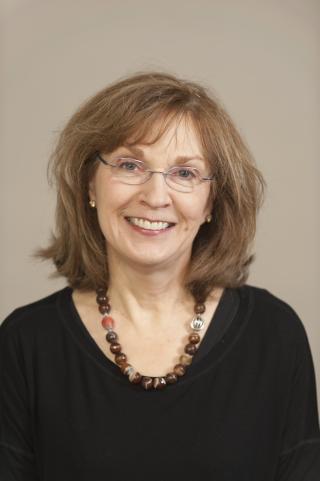Interview with Retiring Professor Theresa Coletti
May 19, 2021

Medievalist Theresa Coletti has been with UMD English for over 45 years and served as English Department Chair during pivotal times in the department.
Theresa Coletti is the author of works including Naming the Rose: Eco, Medieval Signs, and Modern Theory and Mary Magdalene and the Drama of Saints: Theater, Gender, and Religion in Late Medieval England.
When did you start working at UMD English?
A frighteningly long time ago... I was very young and straight out of my Ph.D. program when I began teaching in the department in the fall semester, 1975. The job opening for a medievalist at UMD had been a late development about which I learned from one of my fellow graduate students at the University of Rochester. I was on the verge of accepting a position at one of the SUNY colleges when the Maryland opportunity appeared; I jumped at it. Job applicants weren't as savvy then as they are now. I just showed up for my interview and hoped for the best. I was thrilled to have landed a tenure-track position at a major university located just miles from Washington, DC and relatively close to my family in West Virginia.
What do you consider your biggest/most challenging project while working here?
Not a single project, but surely my most challenging time at UMD English was the period (1993-98) in which I served as department chair. This was an era in which the state and the university seemed to move from one budget crisis to the next. There were few resources; faculty, staff, and graduate assistants would go year after year with little or no raises. One year we had an active faculty search that was halted well into the process because of budgetary problems. This was a time too when the university still conducted all of its official business on paper, lots of paper. One of my accomplishments as department chair was to move all intra-departmental communication from paper to email. Imagine that.
That said, there were many bright spots too. For example, during my time as chair, we were able to recruit excellent faculty such as Merle Collins and Ralph Bauer, as well as tenure and promote outstanding colleagues, and greatly expand the Writing Center.
What have been some of the highlights of your time here?
The various administrative positions that I've held in the department are surely among the highlights, mainly because of the opportunities that they have afforded to work with faculty and staff colleagues on issues beyond my immediate teaching and research. One reason I've cycled through a number of administrative jobs in English is because I have truly enjoyed the sense of teamwork and community that these positions offer. Across its many offices, the department has been and continues to be home to outstanding professional staff, and it's been a privilege to work with them.
Another highlight, happily one that repeats, has been witnessing the successes achieved by my students in and beyond the classroom. Here I think of success broadly: from the undergraduate student who writes an extraordinary paper to the graduate student who lands a rewarding job. These outcomes have provided many rewarding, celebratory moments.
I've also enjoyed the many opportunities I've had to work beyond the department, particularly on college and university committees charged with everything from departmental reviews to searching for the VP of Academic Affairs. These have introduced me to outstanding faculty and administrative colleagues from across the campus and contributed to my own education about the university works. Especially valuable to me was my three-year stint (two as chair) on the University's committee on appointments, promotion, and tenure.
Finally, one specific highlight: to my 2012 Distinguished Scholar-Teacher lecture I invited not only members of my family but friends from my various lives beyond the University, making for a gathering that only that event could have occasioned. It was slightly unnerving but immensely gratifying to see former students from forty years ago in the same audience as my Pilates teacher.
What will you miss most about working at the University of Maryland?
That's an easy one: interacting with my wonderful colleagues and teaching the university's amazing students.
What's next for you?
I have several ongoing research projects that continue or revisit my abiding interests in medieval drama and theater, contemporary adaptations of medieval performance traditions, and the historical novel. My partner, Barry Ames, retires from the University of Pittsburgh this summer too. I hope that we will be able to start planning the travel--e.g. to Portugal, the Galapagos--that we could only contemplate from afar during the pandemic.


